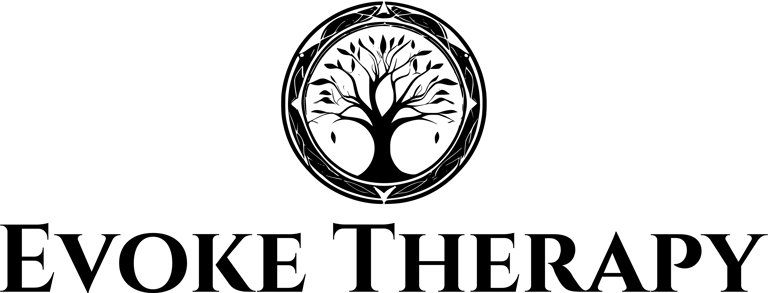Offerings
Individual Therapy
A Holistic Approach:
Holistic therapy is a form of integrative therapy that takes into account the entire person – mind, body, and spirit. It focuses on the interconnectedness of all aspects of a person's life and aims to address the root causes of mental and emotional distress.
Through a combination of traditional talk therapy, mindfulness practices, and holistic healing techniques, individuals are guided towards a deeper understanding of themselves and their experiences.




Individual Sessions
An Integrative Approach
I take an integrative approach to therapy, building a framework from Jungian, systemic, mindfulness, trauma-informed somatic, feminist, dialectical, and transpersonal modalities (more on these modalities below). Every session is tailored to your unique needs, blending practical tools with deeper insight work to help regulate emotions, improve relationships, process past experiences, and reconnect with your sense of self.
Together, we will explore relationship between the "present moment" and the subconscious—hidden stories and wounds from the past that can continue shaping our present. The use of systemic therapy in conjunction with this brings awareness to the larger webs we live within—family, culture, and society—and how these influence our relationships, self-image, and narratives.
Used in conjunction, these approaches help us understand both our inner world and the systems surrounding us.
Jungian-Based Analysis
Jungian therapy uses dreamwork to access unconscious wisdom and explore “parts” that carry both protective functions and deeper truths. This work helps reclaim lost aspects of yourself and move toward greater wholeness. IFS can also be integrated here.
Mindfulness + Eastern Philosophical Practices
Mindfulness invites you into the present moment with awareness and compassion, connecting both mind and body. This practice integrates seamlessly with other modalities, offering a grounded way to observe thoughts, sensations, and feelings while staying connected to your embodied experience.
Trauma-Informed Somatic Work
Trauma often shows up as the past replaying itself in the present. In session, we work with the body as well as the mind, integrating somatic practices to notice and release what has become “stuck.” This allows you to process experiences safely, regulate the nervous system, and reclaim embodied presence.
Exploration and Analysis of Altered States
The transpersonal model bridges psychology and spirituality, exploring how dreams, altered states of consciousness, mystical experiences, and cultural or belief systems shape your inner life. It provides a space to honor the transcendent aspects of being human and integrates these insights into personal growth, self-understanding, and everyday life.
Skills & Behavioral Modalities (CBT + DBT)
Cognitive Behavioral Therapy and Dialectical Behavior Therapy provide practical tools for daily life. CBT helps identify and shift unhelpful thought patterns, while DBT emphasizes emotional regulation, distress tolerance, and interpersonal effectiveness—helping you improve communication, set boundaries, and navigate conflict with more skill. These models are the gold standard for anxiety and depression alongside various diagnosis's.
Optional Additions
Further Insight Through Archetypes & Symbols
These practices use symbolic systems to explore the human psyche and support personal growth. Archetypal Astrology blends traditional techniques with Jungian perspectives, offering insight into life patterns and recurring themes. Jungian-Informed Tarot interprets the cards as archetypal symbols reflecting the unconscious, facilitating self-reflection, shadow integration, and narrative exploration. In therapy, these tools enhance insight, foster awareness of inner dynamics, and support the process of individuation—helping clients engage with their inner world in a structured, psychologically grounded way.
Ancient Body & Energy Healing
These practices draw on sacred, time-honored traditions that connect body, mind, and spirit. Yogic movement, including Vinyasa and Ashtanga techniques, as well as Reiki, can help regulate the nervous system, release tension, and restore balance. Integrated with trauma-informed and somatic approaches, these energetic practices provide a safe space to cultivate resilience, self-awareness, and embodied presence, supporting both healing and personal growth.
Common Challenges I Help With:
Common Issues I Work With
Life, midlife or identity transition
Boundary Issues
Trauma and PTSD
Difficulty trusting after betrayal or relational dynamics
Recovery from abuse
Uncertainty about staying or leaving a relationship
Grief after miscarriage, abortion, or fertility challenges
Living with chronic pain, fatigue, or health conditions
Reproductive based illnesses and mood disorders.
Depression, anxiety and panic attacks
Difficulty making sense of transformative experiences


About Relationship Therapy
Holistic therapy practiced in conjunction with the Gottman Method addresses importance of understanding each individuals unique experiences, beliefs, and values, and how these factors impact their relationship dynamics.
Clients are guided to develop a deeper understanding of each other, improve communication and conflict resolution skills, and build a stronger emotional connection.




Couples sessions include :
Gottman Method
The Gottman Method is a form of relational therapy that focuses on helping each person learn new behaviors and communication skills to improve their relationship. Through this method, clients learn to identify and change negative patterns in their interactions, develop greater intimacy and connection, and enhance their ability to manage conflicts effectively.
The therapy sessions often involve learning and practicing specific techniques, such as active listening, expressing emotions in a healthy way, and finding common ground during disagreements.
The ultimate goal of the Gottman Method is to help clients build stronger, more fulfilling relationships based on trust, empathy, and understanding.
This approach is rooted in extensive research and has been shown to be effective in helping couples address a wide range of issues and improve their overall satisfaction with their relationships. It's a useful model for resolving familial issues as well.
Discernment Counseling
This type of counseling assists couples who are struggling to figure out whether to work things out or separate in finding clarity. Sessions oscillate between couples and individual sessions with the therapist, and focus on deeper exploration and insight as to why one might be leaning out, leaning in, or feeling ambivalent.
Mindfulness Based Therapy for Couples
Mindfulness counseling for couples uses present-moment awareness to improve communication, manage emotions, and deepen connection by reducing reactivity and fostering empathy, leading to more effective conflict resolution and increased intimacy.
Trauma Processing
One of the ways we can look at trauma is: the past, repeating itself in the present, thus interfering with our ability to live in the present. Somatic research has shown that trauma can stay stuck (unexpressed) in the body and/or mind; thus we aim to give it expression.
Common Issues:
Couples & Relational Dynamics
Communication breakdown and conflict
Coparenting, separation, or conscious uncoupling
Sexual difficulties
Planning for a family or major life change
Parenting stress on relationship
Opening up or closing non-traditional relationships
Clarity on whether to restart or end a relationship.
LGBTQ related issues
Premarital counseling
Supporting each other through life transitions, stress, or health challenges
Relational & Attachment Wounds
Codependency and people-pleasing
Attachment anxiety, avoidance, or fear of intimacy
Processing and rebuilding trust after infidelity or addiction
Difficulty with boundaries or balancing autonomy and closeness
Healing sexual intimacy after trauma or challenging experiences


About Family Therapy
I work with adults navigating challenging or complicated family dynamics. This includes resolving long-standing conflicts with parents or siblings, improving communication, setting healthy boundaries, and healing from past family trauma.
Therapy can also support co-parenting, blended family challenges, intergenerational caregiving, or navigating differences in values and lifestyles. Together, we work to foster understanding, restore connection, and create healthier family relationships.


Common Issues:
Family Dynamics:
Long-standing disagreements or patterns of conflict that feel stuck
Feeling overwhelmed by caregiving responsibilities or intergenerational expectations
Lingering wounds from past family trauma or difficult childhood experiences
Navigating narcissistic or anagonistic family systems
Challenges in communication or feeling misunderstood within your family
Differences in values, beliefs, or lifestyles that create tension
Stress around major life events like illness, retirement, relocation, or loss
Co-parenting or blended family challenges
Desire to establish healthier roles, autonomy, and connection


Life Coaching
Coaching aims at helping individuals achieve their personal and professional goals. Unlike therapy, life coaching focuses on the present and the future, rather than delving into past traumas or mental health issues. The goal of life coaching is to empower clients to make positive changes in their lives, develop new skills, and overcome obstacles.
Life coaching is not affiliated with therapy and does not involve diagnosing or treating mental health conditions. Instead, life coaches work with clients to identify their strengths and create a plan for achieving their goals. By providing guidance, support, and accountability, life coaches can help clients make meaningful changes and live their best lives.
This service is not affiliated with psychotherapy and/or Evoke Therapy LLC; life coaching services are offered separately. If you have questions or would like more information, fill out the contact box below (website coming soon...)



Life Coaching Inquiries
This form is for life coaching bookings only. For therapy service consults, click here and fill out a form.
Evoke Therapy LLC
Portland, OR
evoketherapyllc@gmail.com
